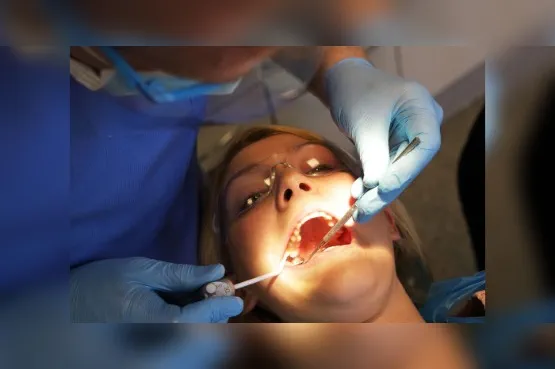What is chlamydia?
Chlamydia is one of the most common sexually transmitted infections (STIs) in the UK. Anybody who is sexually active (has sex) can get it. But it’s more common in people under the age of 25 than in older people. Here, I’ll answer some very common questions about chlamydia.

What are the symptoms of chlamydia?
Most people who have chlamydia don’t have any signs or symptoms. So, you might have the infection and pass it on to somebody you have sex with without knowing. If you do get chlamydia symptoms, they can appear up to three weeks after you get the infection. You may have:
- cloudy white, yellow, or green discharge from your vagina, penis, or anus
- vaginal, testicular or tummy pain
- vaginal bleeding between periods or after sex
- pain when you pee or when you have sex
- a sore throat (if the infection has been passed on during oral sex)
If you have a chlamydia infection in your rectum (back passage), you might notice some discomfort and discharge from your anus. But usually, you won’t have any symptoms. If your eyes are infected (chlamydial conjunctivitis) you might have some mild irritation.
If you think you could have a sexually transmitted infection (STI), you should get tested whether you have the symptoms above or not.
Does chlamydia go away?
Chlamydia is usually easily treated with antibiotics. If you get tested and treated for chlamydia early, it’s less likely to cause you further problems.
Chlamydia might sometimes get better on its own. But the infection can spread to your testicles, womb (uterus), fallopian tubes and ovaries. This can cause more serious problems, including:
- pelvic inflammatory disease (PID)
- infection of the testicles (epididymitis and/or orchitis)
- infertility
Chlamydia can also lead to permanent rectal damage (damage to the back passage) in people with an STI called lymphogranuloma venereum (LGV). This is most common in men who have sex with men. It can cause painful inflammation of the rectum. You can also get a discharge and swollen lymph glands (lymph nodes).
That’s why it’s important to treat chlamydia with antibiotics.
How do you get chlamydia?
Chlamydia caused by a type of bacterial infection. You can get or pass on chlamydia through having unprotected vaginal, anal, or oral sex with an infected person. It can also be passed on by sharing sex toys.
The bacteria can’t survive outside the body for long. You don’t get chlamydia from kissing, hugging or sharing baths, towels or cutlery. You also won’t get it from swimming pools or toilet seats.
When should you get tested for chlamydia?
If you think you might have chlamydia, do not delay being tested. You should arrange to have a test if:
- you, or a person you’ve had sex with, has any of the symptoms listed above
- you’ve recently had unprotected sex (sex without a condom) with somebody new
- somebody you’ve had sex with has had unprotected sex with another person
- somebody you’ve had sex with recently tells you they have a sexually transmitted infection
- you’ve had sex with two or more people in the last year
You can have a chlamydia test even if you don’t have any symptoms. Everyone should get tested for STIs annually, including if you have a long-term partner.
How do you get tested for chlamydia?
Testing for chlamydia is done with a swab test or urine test. If you’re sexually active and under the age of 25, it’s recommended that you have a chlamydia test at least once a year. If you regularly have sex with new partners, you should test every three months. There are a number of services where you can get tested for chlamydia and other STIs for free, and straight away. These include:
- genitourinary medicine (GUM) and sexual health clinics
- online services
- your GP surgery
- contraception clinics and some pharmacies
You can also pay to get a test done at a private clinic. All visits are confidential. Chlamydia testing kits can be bought to do at home as well.
If the tests show that you have chlamydia, it's important to inform anybody you’ve recently had sex with. This could be anyone you’ve had sex with in the past six months. Your clinic will advise you.
How is chlamydia treated?
Chlamydia is usually easily treated with oral antibiotics (you can take as tablets). Your doctor might prescribe a course of an antibiotic called doxycycline that you’ll need to take for a week. Sometimes, other antibiotics are used instead. This will depend on the type of chlamydia infection you have, and which antibiotic will provide the best treatment. If you’re pregnant tell your doctor so that they give you the right antibiotic.
If you’re diagnosed with chlamydia, you shouldn’t have sex again until you and the person you’re having sex with have finished treatment. Check with your doctor when exactly this should be.
The time can vary depending on which type of antibiotic treatment you have.
Can I reduce my risk of getting or passing on chlamydia?
Practicing safe sex can help you prevent getting or passing on chlamydia, as well as other STIs.
- Use condoms whenever you have vaginal, oral or anal sex.
- A latex square (dental dam) can also be used to cover the anus and vaginal opening, including the area around it.
- Don’t share sex toys. If you do, wash them well or cover them with a new condom before anyone else uses them.
- Before you have unprotected sex with somebody new, have a test for chlamydia and other STIs.
Hello, I'm Dr Naveen Puri, I'm one of the GPs at Bupa Health Clinics. Today I'd like to talk to you about presenting with problems that may be of a sexual health nature.
We know that people can often feel embarrassed talking about their sexual health for fear of judgement. Some shame or embarrassment may accompany your concerns, but please let me assure you, as doctors, we've heard it all before.
Any concerns you have we've come across on many occasions and we're here to offer you a judgement and pain-free service in as far as we possibly can.
It's in your interest to tell us all your symptoms so we can help you get better and prevent any consequences that might come into play if you don't seek out help for your condition sooner rather than later.
We know for example some untreated infections can lead to problems with fertility. They can lead to pelvic inflammatory diseases or severe infection of the testicles so rather than you getting worse and your symptoms progressing to something more serious, let us know sooner rather than later so we can help you.
In terms of accessing sexual health services, there are many ways young can do this. We offer the services within Bupa and you can also access the services within the NHS as well.
Some people like to go to a walk-in service where they can turn up and wait for an appointment, others prefer to book an appointment in advance and that way they know when they're going to be seen and arrive at the clinic in an appropriate time frame as well.
I'd also say there's nothing to be ashamed or embarrassed about, we have seen and heard all of the symptoms before.
The kind of things people come to us with range from pain during intercourse, a discharge, either from the penis or the vagina, or other symptoms such as abdominal pain, a sore throat or other things that could occur after an infection is acquired.
So, whatever it might be, let us do the detective work for you. Let us know what your symptoms are.
Feel free to bring someone with you if you'd like, write your problems down so you can discuss them with us. Or use the language you want to as well, we don't expect you to know the medical terms for things we can help you with that as well.
And hopefully, together we can get to the bottom of whatever your issue is, and we can provide you with an appropriate treatment or cure if that is available as well.
We offer a range of sexual health services within our Bupa Health Centres. So whether you have symptoms and need to speak to a GP or don't have symptoms but want a check to see if you currently have an STI we have a check to suit you. Any customers who test positive receive a follow up with a GP and support from our 24/7 Nurse HealthLine. Learn more today.
-
Sources Sources
- Sexually transmitted infections and screening for chlamydia in England: 2023 report. UK Health Security Agency. gov.uk, updated July 2024
- Chlamydial genital infection. Patient. patient.info, last updated March 2022
- Chlamydia - uncomplicated genital. NICE Clinical Knowledge Summary. cks.nice.org.uk, last revised August 2024
- Chlamydia. World Health Organisation. who.int, published November 2024
- A guide to chlamydia. British Association for Sexual Health and HIV. bashh.org, published October 2016
- Chlamydia 2015 guidelines. British Association for Sexual Health and HIV. bashh.org, last updated September 2018
- Chlamydia, looking after your sexual health. Family Planning Association. fpa.rog.uk, accessed December 2024
- LGV (lymphogranuloma venereum). Terrance Higgins Trust. tht.org.uk, last reviewed December 2021
- STI Testing: FAQs. Brook. brook.org.uk, accessed December 2024
- Chlamydia. SH:24. sh24.org.uk, accessed December 2024
- Where can I get sexual health advice, now? NHS. nhs.uk, last reviewed December 2022
- NCSP patient information leaflet. UK Health Security Agency. gov.uk, published February 2024
About our health information
At Bupa we produce a wealth of free health information for you and your family. This is because we believe that trustworthy information is essential in helping you make better decisions about your health and wellbeing.
Our information has been awarded the PIF TICK for trustworthy health information. It also follows the principles of the The Information Standard.

More general health advice articles
Did you find our advice helpful?
We’d love to hear what you think. Our short survey takes just a few minutes to complete and helps us to keep improving our healthy lifestyle articles.
Legal disclaimer
This information was published by Bupa's Health Content Team and is based on reputable sources of medical evidence. It has been reviewed by appropriate medical or clinical professionals and deemed accurate on the date of review. Photos are only for illustrative purposes and do not reflect every presentation of a condition.
Any information about a treatment or procedure is generic, and does not necessarily describe that treatment or procedure as delivered by Bupa or its associated providers.
The information contained on this page and in any third party websites referred to on this page is not intended nor implied to be a substitute for professional medical advice nor is it intended to be for medical diagnosis or treatment. Third party websites are not owned or controlled by Bupa and any individual may be able to access and post messages on them. Bupa is not responsible for the content or availability of these third party websites. We do not accept advertising on this page.







